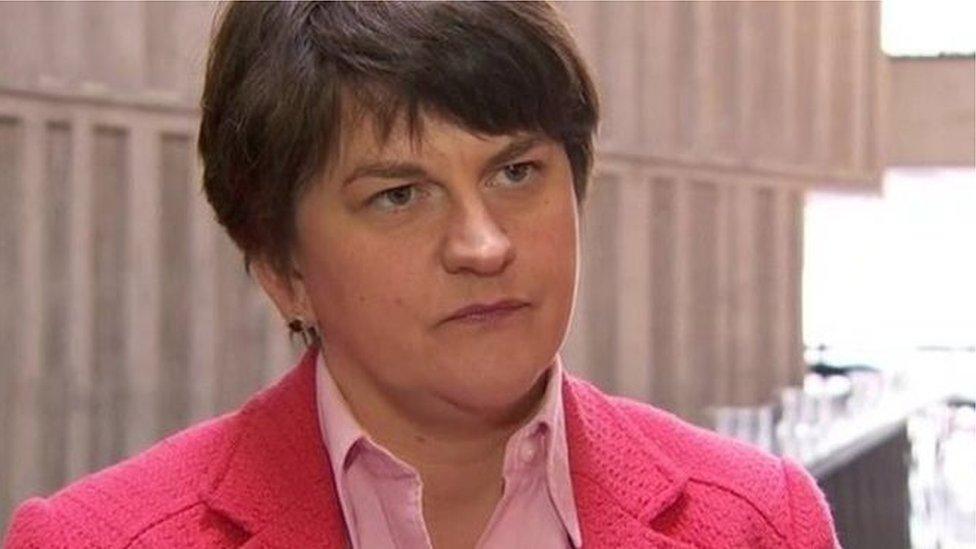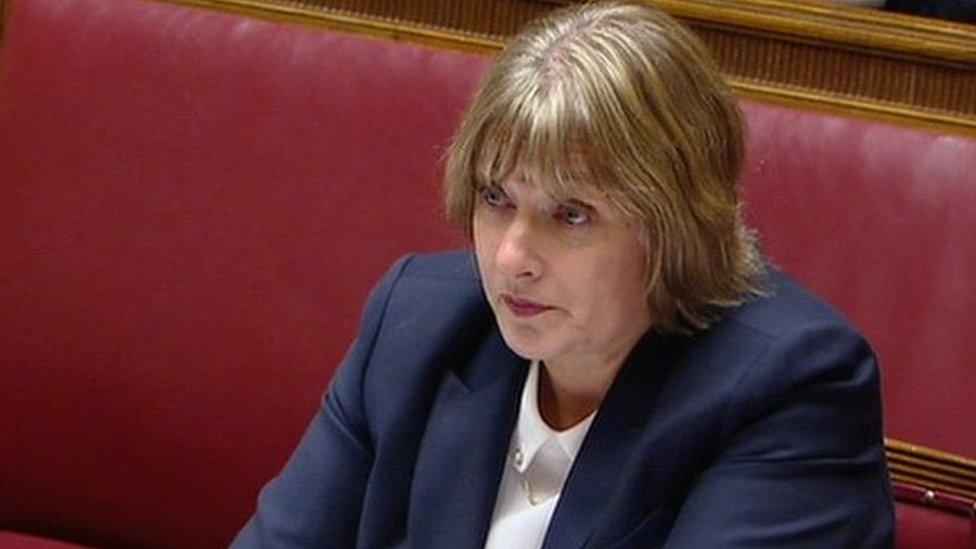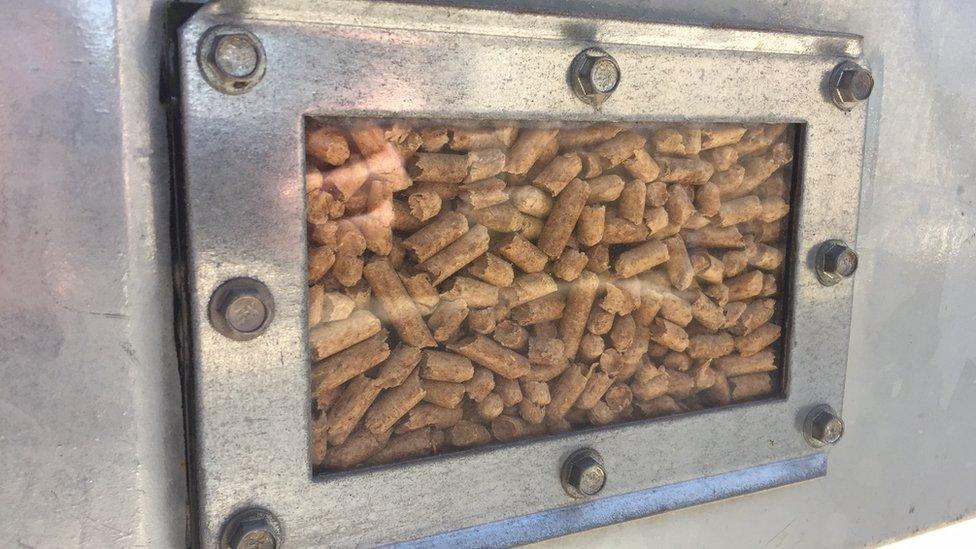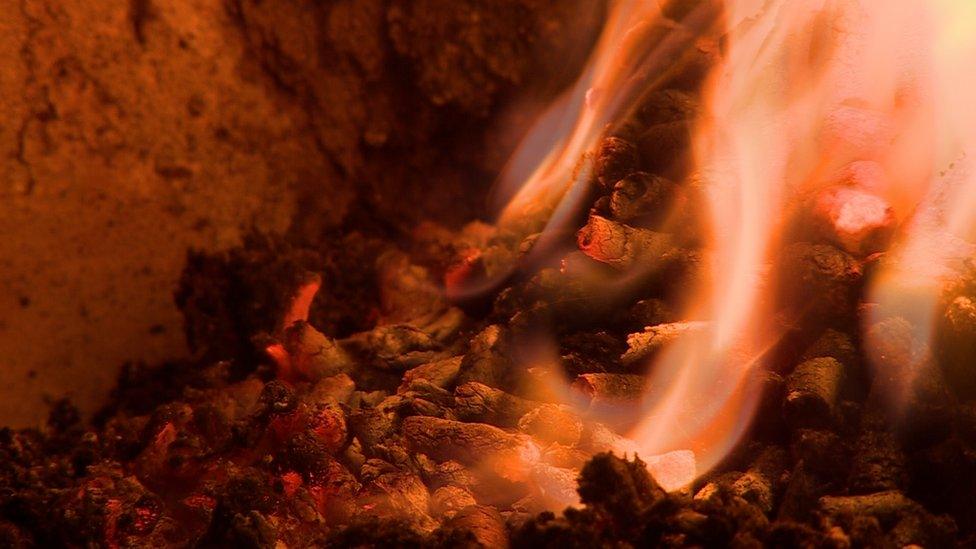RHI Inquiry: Arlene Foster's appearance brought forward
- Published

Mrs Foster had not been due to give evidence until late Spring
Former enterprise minister Arlene Foster will be called to give evidence to the Renewable Heat Incentive inquiry earlier than expected.
Before she became first minister, Mrs Foster oversaw the department which introduced the flawed green energy scheme.
But she had not been due to testify until later this Spring.
Inquiry chairman Sir Patrick Coghlin said she would now be asked to give evidence at an earlier date.
Her DUP special advisor Andrew Crawford and former permanent secretary David Sterling - who is now the head of Northern Ireland's civil service - will also have their evidence sessions brought forward.
Sir Patrick said that was so that they could address issues around the design and implementation of the scheme.
On Monday, a senior official from the Department of Enterprise, Trade and Investment (Deti) gave evidence for a third time.
Fiona Hepper was the civil servant in overall charge of the unit which introduced the scheme.
She was asked about warnings from scheme administrators, Office of Gas and Electricity Markets (Ofgem) in November 2011 that Northern Ireland's draft regulations were open to abuse.

Fiona Hepper headed the division that designed and implemented the scheme
She said the approach was to launch the scheme and fix any issues as it developed.
She said Mrs Foster had not been told about the warnings as she was aware her officials were taking a "phased approach" which was meant to pick up any problems.
The department has subsequently said it would have been "preferable" had the minister been told.
Later Ms Hepper explained why the decision to launch the Northern Ireland scheme had been taken, despite advice to wait.
Ofgem suggested it should be delayed so that an emergency brake being introduced in Great Britain, could be built into the Northern Ireland regulations.

The RHI scheme subsidised the cost of claimants' fuel - mostly wood pellets - for running renewable heating systems
But that would have delayed the scheme in Northern Ireland by up to a year and meant that Treasury money provided for it would have to be returned.
The warning was issued during a teleconference with Ofgem in June 2012, but Deti officials said there was a "commitment" with their minister, Mrs Foster, to get the scheme launched by the end of September.
Mrs Hepper said she had spoken to the minister later about the warning from Ofgem, but Mrs Foster was happy to go ahead with the launch as long as a consultation on cost controls was brought forward.
The official said this mirrored what had happened in Great Britain where the scheme had been started a year earlier and the cost controls brought in later.
She said that when that cost control consultation was introduced in 2013, there were only 16 businesses accredited to Northern Ireland's RHI scheme.
Ultimately, the cost controls were not introduced as a result of that consultation.

The RHI scheme brought Stormont's institutions to collapse in January 2017
The inquiry, which is taking place at Stormont, was set up to investigate the circumstances surrounding the energy initiative, after its costs spiralled.
The RHI scheme offered to subsidise the cost of its claimants' fuel - mostly wood pellets - for running new renewable heating systems.
But the fuel actually cost far less than the subsidy they were receiving, effectively meaning that users could earn more money by burning more fuel.
The most recent estimate put the projected overspend at £700m over 20 years if measures to control the cost are not implemented.
The scandal generated significant public concern and the fallout led to a major political crisis in Northern Ireland that exists to this day.
- Published7 December 2017

- Published23 October 2019

- Published7 November 2017

- Published5 December 2017
